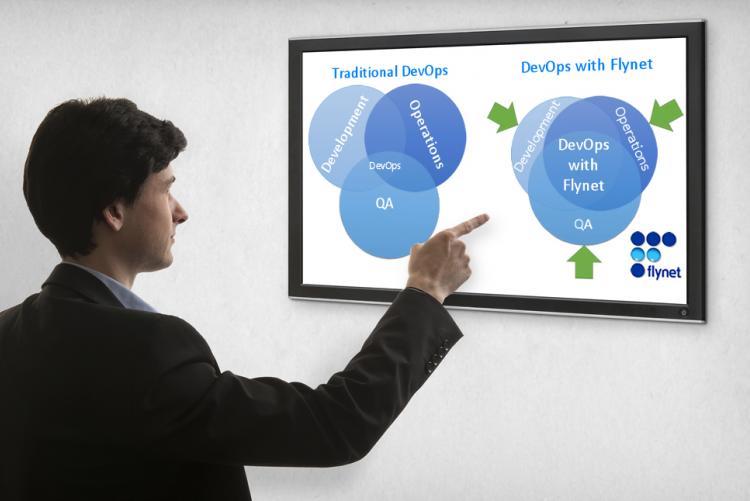Moving Toward DevOps
There is a growing trend towards a DevOps culture as organisations strive to improve their systems and maximise the value they are extracting from their IT investments. Closer collaboration between the operations teams who utilise the business systems and the developers who create them has been notoriously difficult when dealing with host applications.
Are host systems creating a barrier to effective DevOps?
The business critical nature of these applications and the specialist skillsets required to maintain them mean that historically development projects have been confined to technology teams. There has been little room for involvement from operations. This puts a large strain on the development team and often leads to lengthy development lifecycles and applications that do not fully meet the organisation’s evolving requirements.
The best application designers are often those who interact with the applications most frequently and understand the demands placed on them. With the Jubilant API and Jubilant’s highly visual rapid application development environment (Jubilant UX/WS), operational teams can be empowered to sit alongside and participate in the development and modernisation of enterprise applications.
This empowers operational teams to freely contribute to the optimisation of the systems they use on a daily basis, engendering closer collaboration across the enterprise and creating quicker development cycles. This philosophy sits at the heart of an agile DevOps culture and in turn drives innovation and value.
The role of quality software, APIs and development environments
According to a recent survey of 250 business leaders by Harvard Business Review Analytic Services, 66% of respondents say that their company's future depends on the quality of their software; nowhere is this more apparent than legacy application access and modernisation. Legacy and host systems often act as the primary Systems of Record within organisations, so it is imperative that the data housed in them is utilised to its fullest to drive value for organisations. Whilst development teams are vital to ensure the systems are maintained and accessible, the value for organisations is driven from operational interactions that utilise the data in those systems.
For agile organisations using host and legacy systems, quality APIs and open access are key to realising effective DevOps. Tools like Jubilant UX/WS allow development teams to meet operational requirements and expand their host systems quickly and efficiently, they also expand the modernisation framework to use more widely available skillsets like .NET. This allows organisations to add the functionality required by operations without compromising the integrity of the host application (which in some instances they may not own).
Host/Legacy system DevOps in practice
The Jubilant UX Modernization IDE (Integrated Development Environment) tool was recently used by operations teams at DAF Trucks. Once the development team had implemented Jubilant Terminal Emulator's pure HTML terminal emulation solution, an application power user from the operations team was able to completely modernise the green screen dealer management system and optimise the navigation to meet the organisations objectives. This required minimal input from DAF’s development team.
The modernisation of the dealer management system was originally quoted as requiring a minimum of 500 developer/consultant days using an alternative solution. With Jubilant UX Modernization a member of the operations team, a non-developer, was able to deliver the solution in 70 days.
Another Jubilant Customer used the API to integrate web services that augmented their application with data from an external source; quickly giving the organisation a more holistic view and improving decision making. The API meant that this could be achieved quickly and customised to meet operational objectives without enlisting specialist host and legacy system skillsets.

